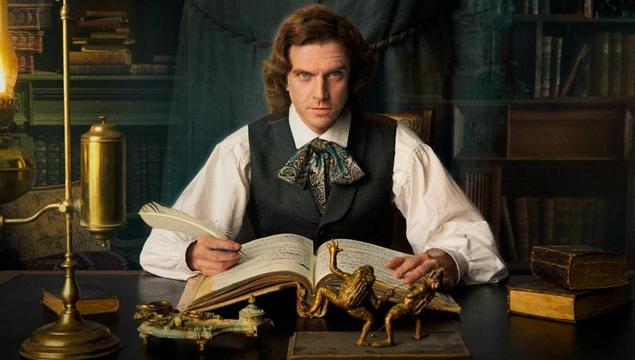
Dan Stevens as Charles Dickens in The Man Who Invented Christmas.IMDb
Director Bharat Nalluri, the helm behind The Man Who Invented Christmas, talks about the tough times that inspired A Christmas Carol and how Charles Dickens brought joy to the world.
Editor's note: This article was originally published in 2017.
If you like decorated trees, festive cards, carolers, and gifts, you'd have been pretty disappointed on December 25 in 1843. “Christmas certainly wasn't being celebrated the way it is today,” says director Bharat Nalluri. But his film (starring Downton Abbey's Dan Stevens) shows how Dickens conjured up Scrooge, Tiny Tim, and a trio of ghosts to change all that.
“I have been fascinated with A Christmas Carol since first reading it as a child,” he says.
“Since making the movie and immersing myself in all things Dickensian, I have become an evangelist.” Nalluri starts spreading the word by telling BHT about the author's life, the Victorian-era cruelties he sought to reform, and how a hastily written novella rescued both the world's favorite holiday and its creator.
British Heritage Travel: What was life like for children in “The Hungry 40s”?
Bharat Nalluri: It was a pretty miserable time. An economic slump was followed by high unemployment. The price of bread was kept artificially high due to the Corn Laws, and to top it all, there was the potato blight of 1846. The poverty levels rose and a growth in industrialization led to children working in factories and mills across the country. Very young girls, from the age of five, went into domestic servitude. Poverty and disease were rampant, as was illiteracy.
"Dickens himself faced this as a young boy when his father went to debtors' prison and he was forced to earn the family's keep at a blacking [shoe polish] factory. The experience haunted him his entire life, and it's not surprising his books are full of struggling children—from Smike to Tiny Tim, Little Nell, and Oliver Twist."
BHT: It's almost impossible to think of a time when the Christmas holiday wasn't so dominant.
BN: Maybe in the countryside some of the old traditions had stayed on, but in general, ever since 1644, when Parliament created a law stating that December 25 be a day of fasting and penance, it had not recovered. Cromwell didn't help matters either, being vehemently opposed to it. It took sterling work from authors such as Scott, Irving and especially Dickens to help put it back on the map.
I can't recommend Les Standiford's book The Man Who Invented Christmas [which the movie is based on] highly enough. It sets out in detail the historical context for the writing of A Christmas Carol. It was my go-to resource when trying to work out what drove Dickens.
BHT: Is it true he originally conceived of this tale as a pamphlet?
BN: People do say that. It was written in six frenetic weeks before Christmas 1843. It was originally going to be a pamphlet in response to a government report on child labor.
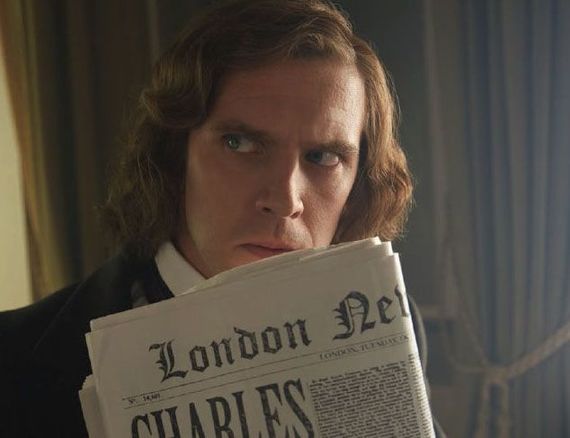
On what drew him to this project: “I am always attracted by the script. Susan Coyne's humorous and emotional script was wonderful in the way it melded Dickens' real and imaginary worlds.”
BHT: Where was Dickens in his career and life at that point?
BN: He was young still, in his early 30s, and before the famous beard. He already had success with Oliver Twist, Nicholas Nickleby, and The Old Curiosity Shop. This was followed by a not-so-well-received Barnaby Rudge. American Notes, which alienated many of his American readers, came next, and then Martin Chuzzlewit, which was not critically or commercially successful at the time.
When the film starts, we find him in financial and creative difficulties: suffering writer's block, stifled by his fame, with an urge to write something that would have a profound impact on society and a need to earn money. Due to his childhood memories, the idea of debt was something Charles was very fearful of. Piracy on his earlier books—the Americans did not believe in international copyright—had meant that, though he was well known, Charles had never recouped as much as he should have.
BHT: Was the idea that employers like Scrooge should care for their workers unusual at the time?
BN: It was gaining ground. Industrialists such as Cadbury were starting to shape new models, where the care of their employees was becoming an important factor in how they did business. However, in general, it was still a radical idea. The wonderful Fezziwigs, middle-class successful merchants who throw a party in A Christmas Carol and overtly care for their staff, is Dickens' way of showing that one could be wealthy and charitable.
BHT: How did the publication of A Christmas Carol change feelings about the holiday?
BN: There are a lot of things Dickens idealizes about Christmas in the book. Most of it probably comes from his own memories as a child—celebrating Christmas with his father and family, snow falling, dancing, roaring fires, blind man's buff, and mulled wine. However, his true brilliance was to transcend that and remind us all of what is at the very heart of Christmas.
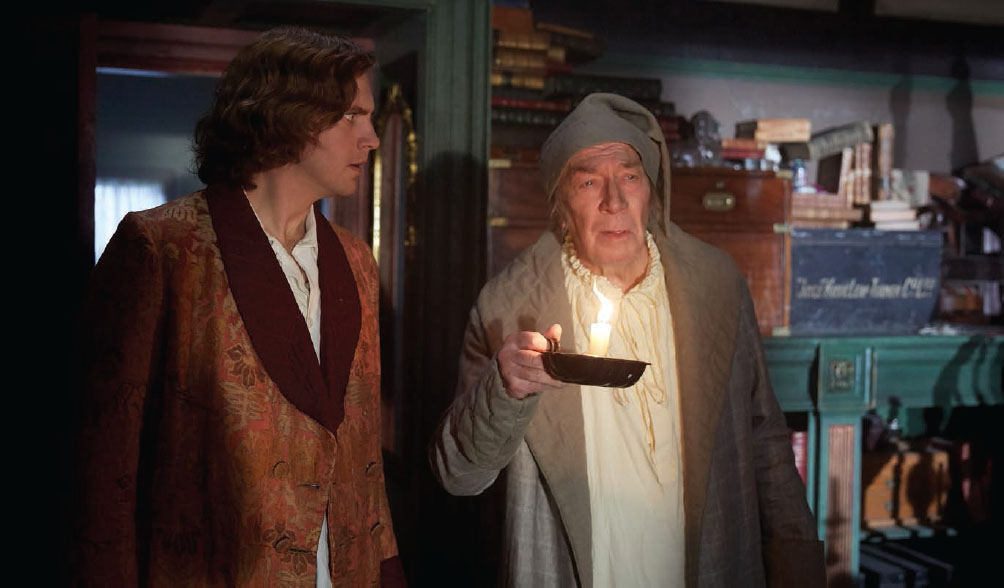
“Dan instinctively knew this was a script for him and he was very keen to create a Dickens that the audience had never seen before. Christopher is Canadian, but he's played many a Brit in his career. He was born to play the role of Scrooge, and he brings immense wit and charm to it.” KERRY BROWAN/BLEECKER STREET
BN: I would love to think so. Many a biographer believes so. It's interesting to note that for the first eight years of his life, he witnessed a white Christmas. Who knows if this influenced him? But somewhere I would like to think that it was the case. I certainly couldn't have made this film without it snowing somewhere. The story of Dickens and A Christmas Carol feels just plain wrong without some snow.
BHT: Did the novella end up changing his life?
BN: It was not, in the short term, the financially lucrative book he needed. Although its first three runs sold out, the high quality of binding illustration and print that Charles insisted on meant most of the profits went into costs. However, it creatively put him back at the very top of his game and seemed to free him from his self-imposed writer's block. He went on to write many a masterpiece after its release and never found himself in such dire straits again. Later in life, he finally made a handsome return from the book by touring with A Christmas Carol, single-handedly bringing his characters back to life on stage.
BHT: You've worked on a lot of great adventurous sci-fi shows—The 100, Torchwood: Miracle Day. What drew you personally to this fun, joyous, heartwarming historical fiction mixed with biography?
BN: In a way, A Christmas Carol is an adventurous bit of sci-fi. The idea of traveling in time to visit oneself is a well-worn path in this genre. Dickens just happens to have done it before many with the aid of Scrooge and his ghosts.
BHT: Were you a Dickens fan before this film? If not, did working on this give you a greater appreciation?
BN: I came late to Dickens. I have read a few of the classics but was no expert. To keep me on my toes, both Miriam Margolyes (who plays Mrs. Fisk) and Simon Callow (Leech) have roles. Not only are they wonderful actors, but they are also renowned Dickensian scholars. It was wonderful to get their seal of approval on the script.
BHT: Dan Stevens said people forget Dickens was also “quite dark and not very pleasant,” which sounds like many writers. What do you think of him now?
BN: The one thing I do know is that there is no such thing as a typical writer. I have been lucky enough to work with some of the most creative writers in the film world. The one thing I have taken away is that they all have their own processes. However, if you are passionate, work often takes you to dark places as you delve into your character's psyche. I would, though, like to think Dickens was an optimist. Many of his characters triumphed, and good often prevailed. Was he a good man? I don't know. Did he try to be a good man? Yes, I believe so.
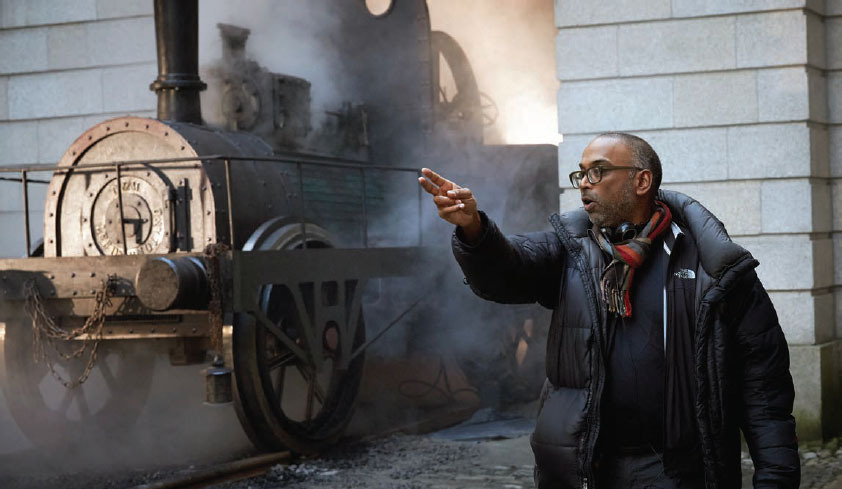
“I was brought up in a family that didn't celebrate Christmas and I was always intrigued as to what it stood for,” Nalluri says. KERRY BROWAN/BLEECKER STREET
BN: As I said, it was a miserable one if you didn't have money or standing. The amazing thing about Dickens was that he was a champagne socialist. He loved the trappings of success but was angsted over the inequality that existed. “It was the best of times, it was the worst of times” sums it up succinctly. Maybe that's why we love it; it was a time of possibility and certainly, even in his darkest novels he highlighted the simple pleasures of life. After all, who doesn't want to be standing around a roaring fire, eating horse chestnuts, singing Christmas carols with the snow falling around you?
BHT: The film has a wonderfully whimsical depiction of his writing process with characters appearing and disappearing—almost like he's haunted by his own creations. Is that how you experience the creative process?
BN: There’s a wonderful drawing from the time, of Dickens at his writing desk with all his characters floating around him. This was a major inspiration for the movie and even the movie poster. Writer Susan Coyne also extrapolated from references detailing that Dickens often used to talk in his characters' voices and play out whole scenes for himself and others. Sometimes, those voices ran like a river, and, at others, they iced over. As a filmmaker, I certainly recognize those moments of frustration, whimsy, and adrenalized creative energy.
BHT: Because it's such a cultural touchstone, people forget that the book is also just so clever. Do you have a favorite line?
BN: A lot of it potentially feels like a cliché now, but it was the first time that something like this had been put to paper. It was truly radical, using humor and pathos to drive an underlying message home. That's why it stands the test of time and can be revisited again and again. My favorite line is near the very end, part of a description of the new Scrooge: “His own heart laughed, and that was quite enough for him.”
This interview has been condensed for size and clarity.


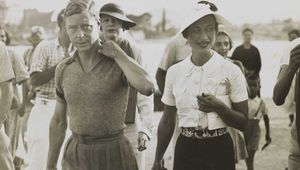

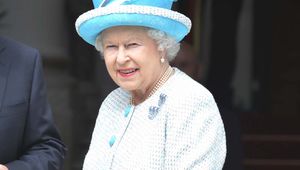
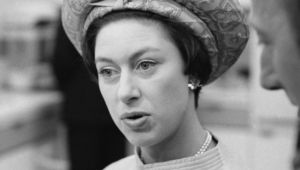
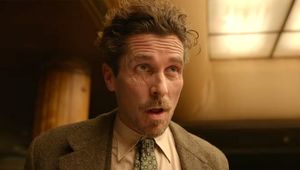


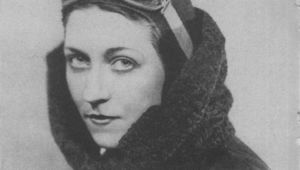
Comments